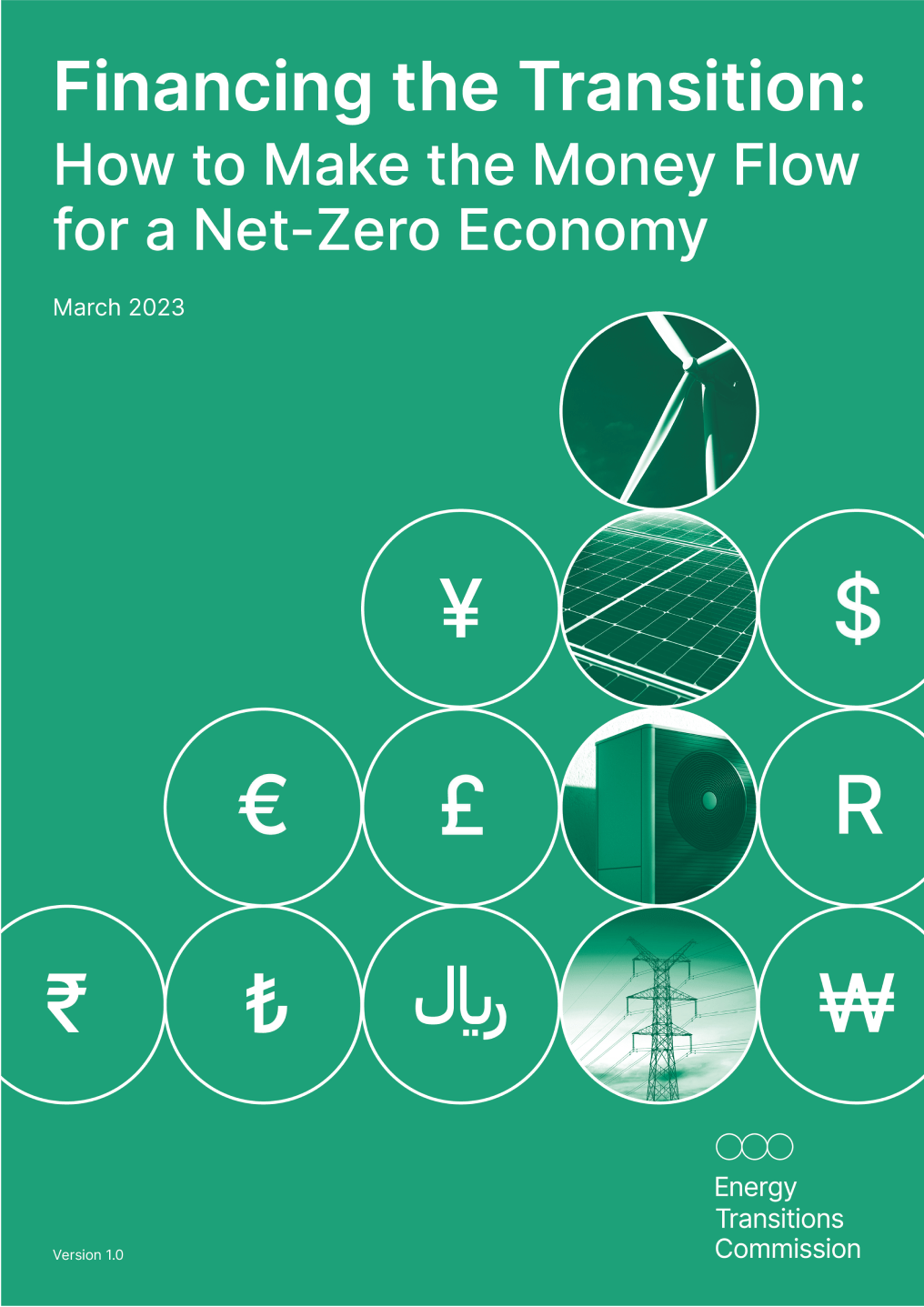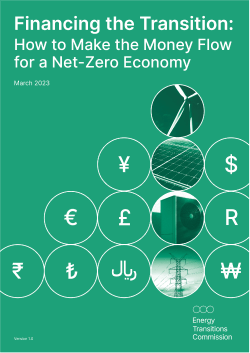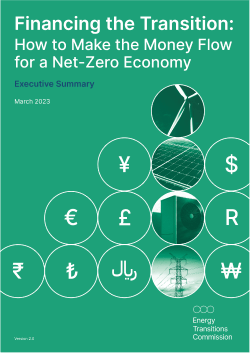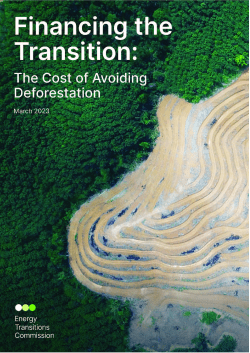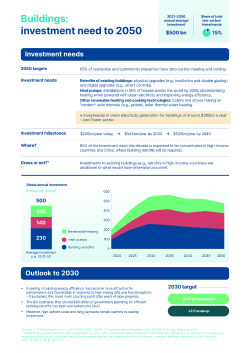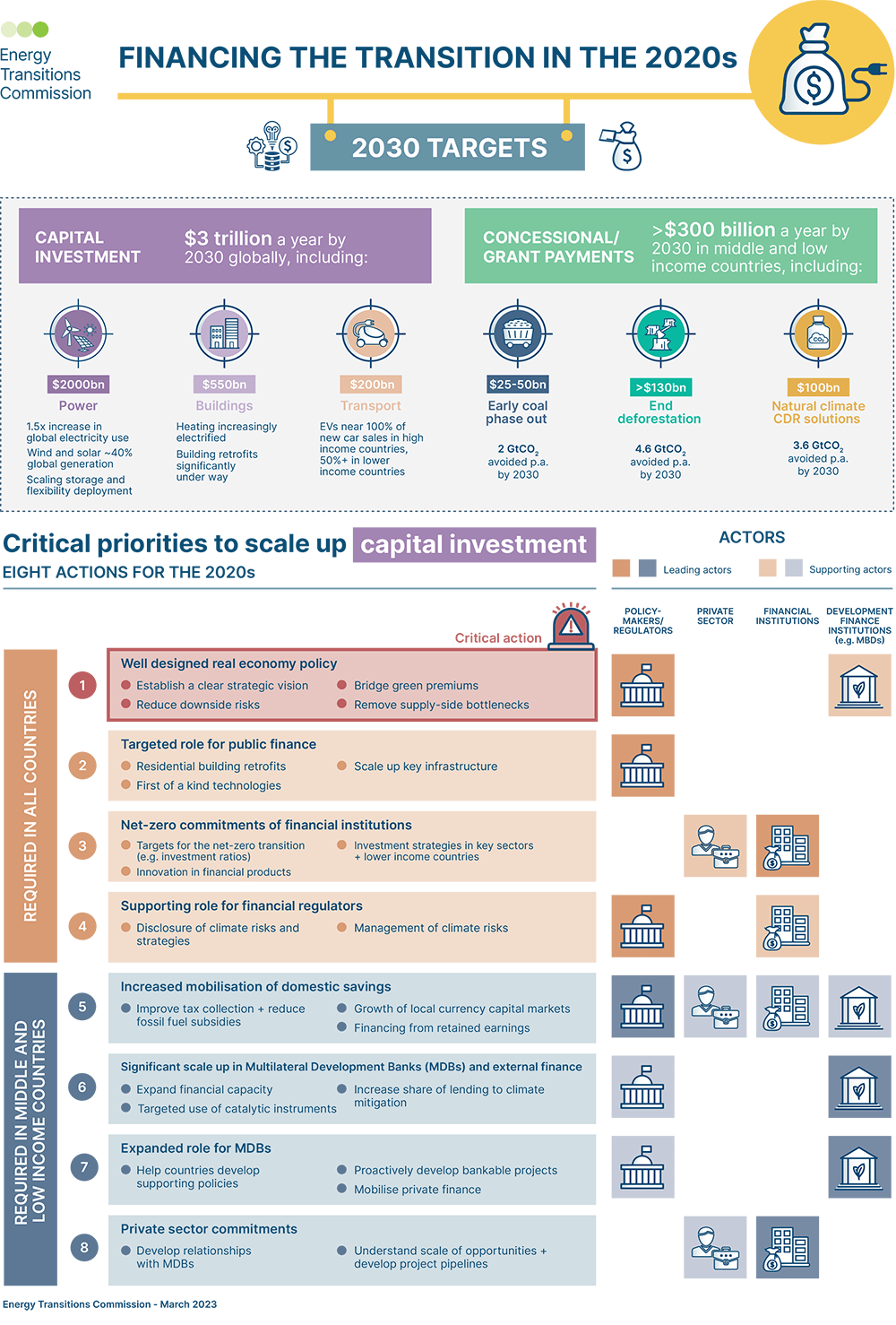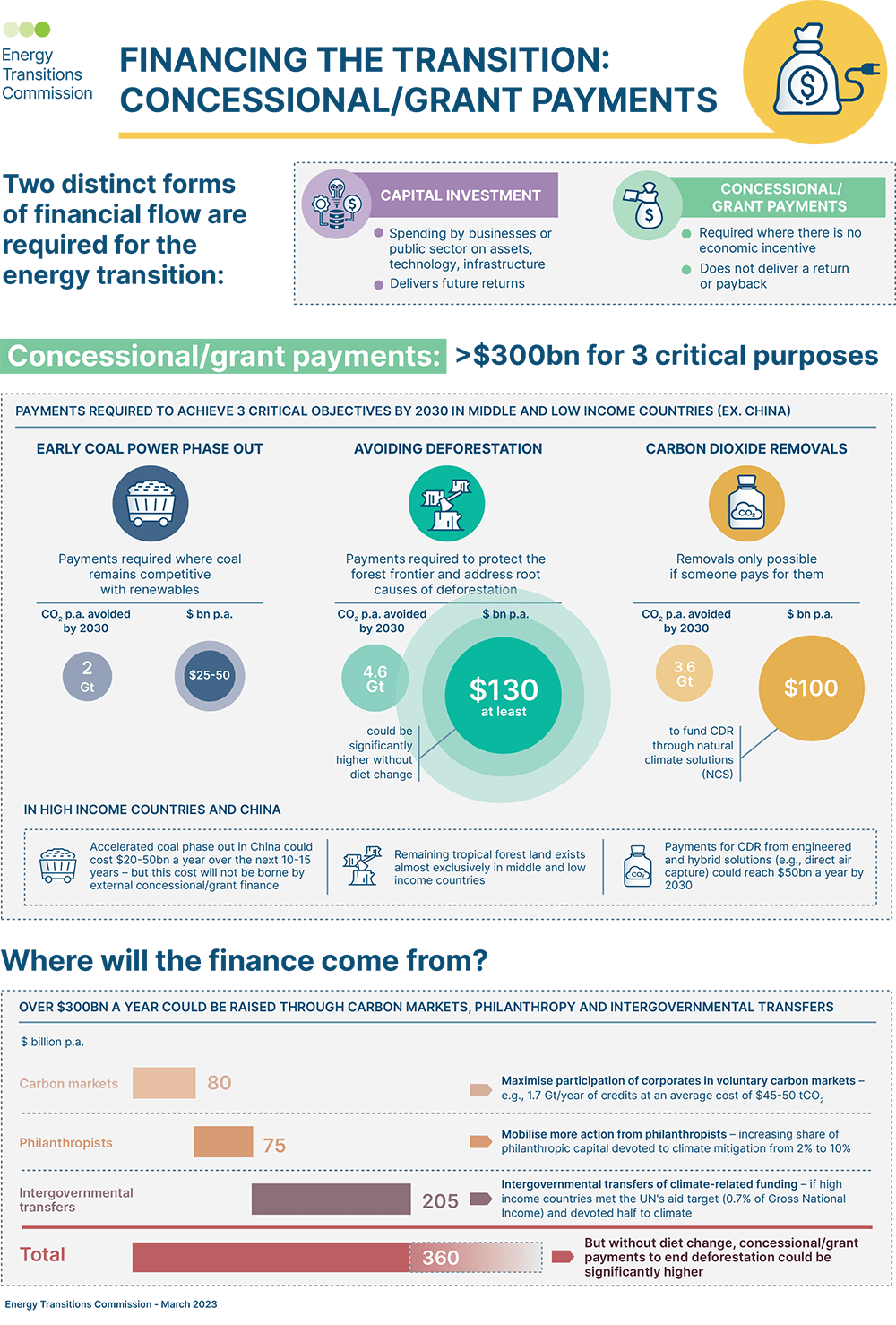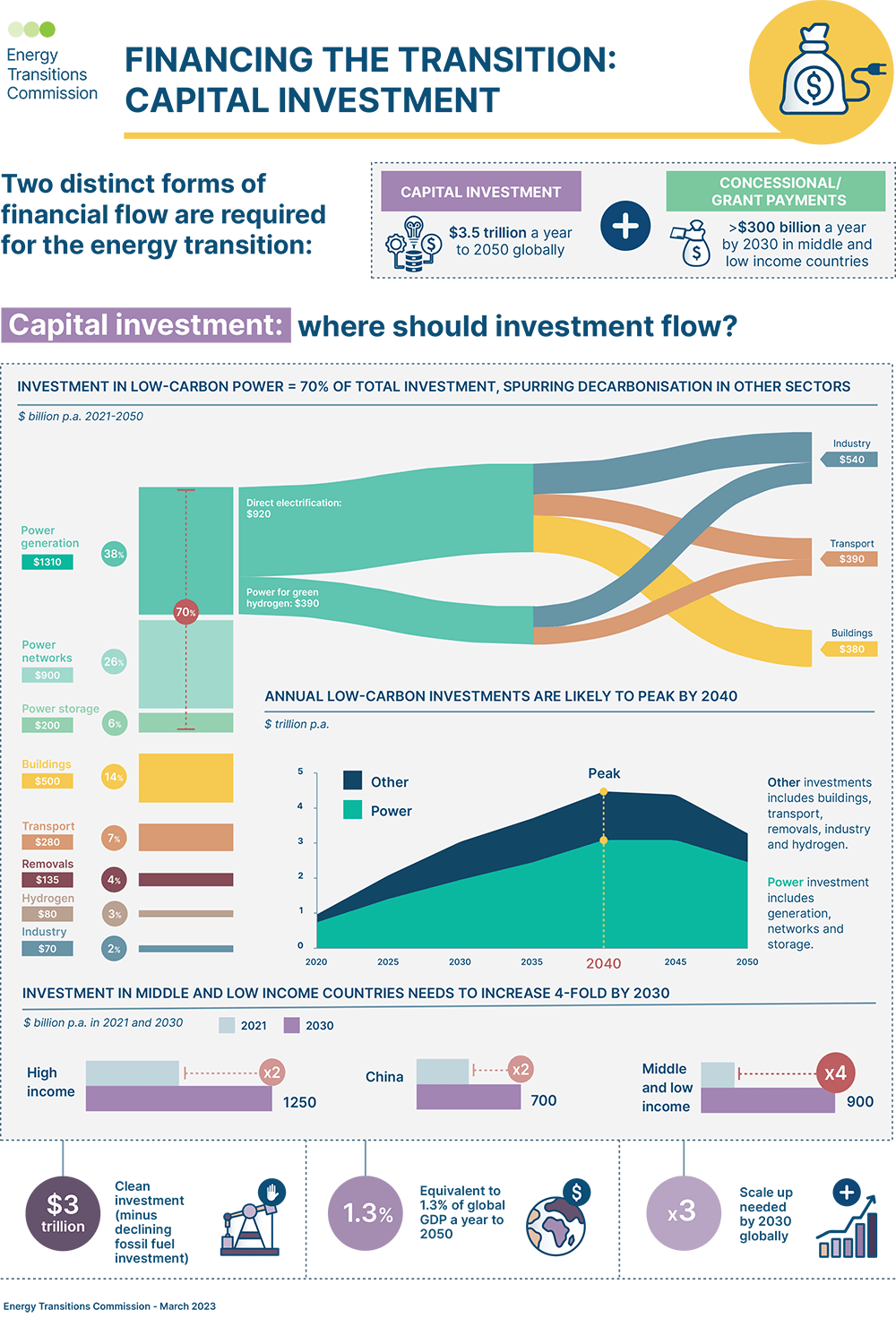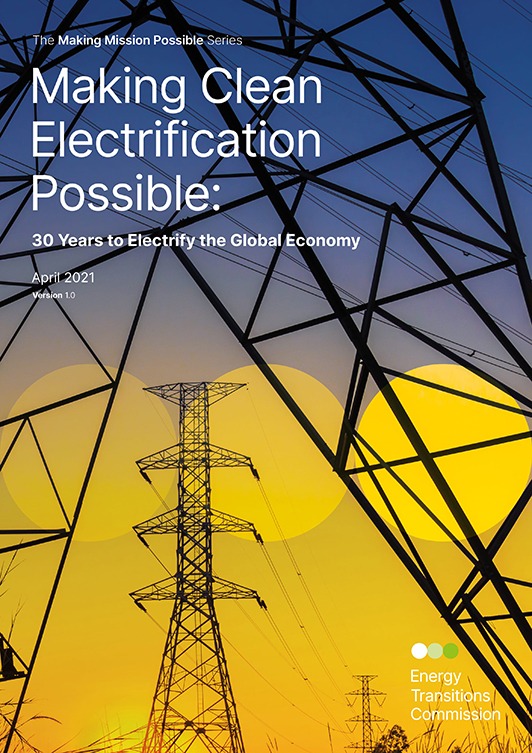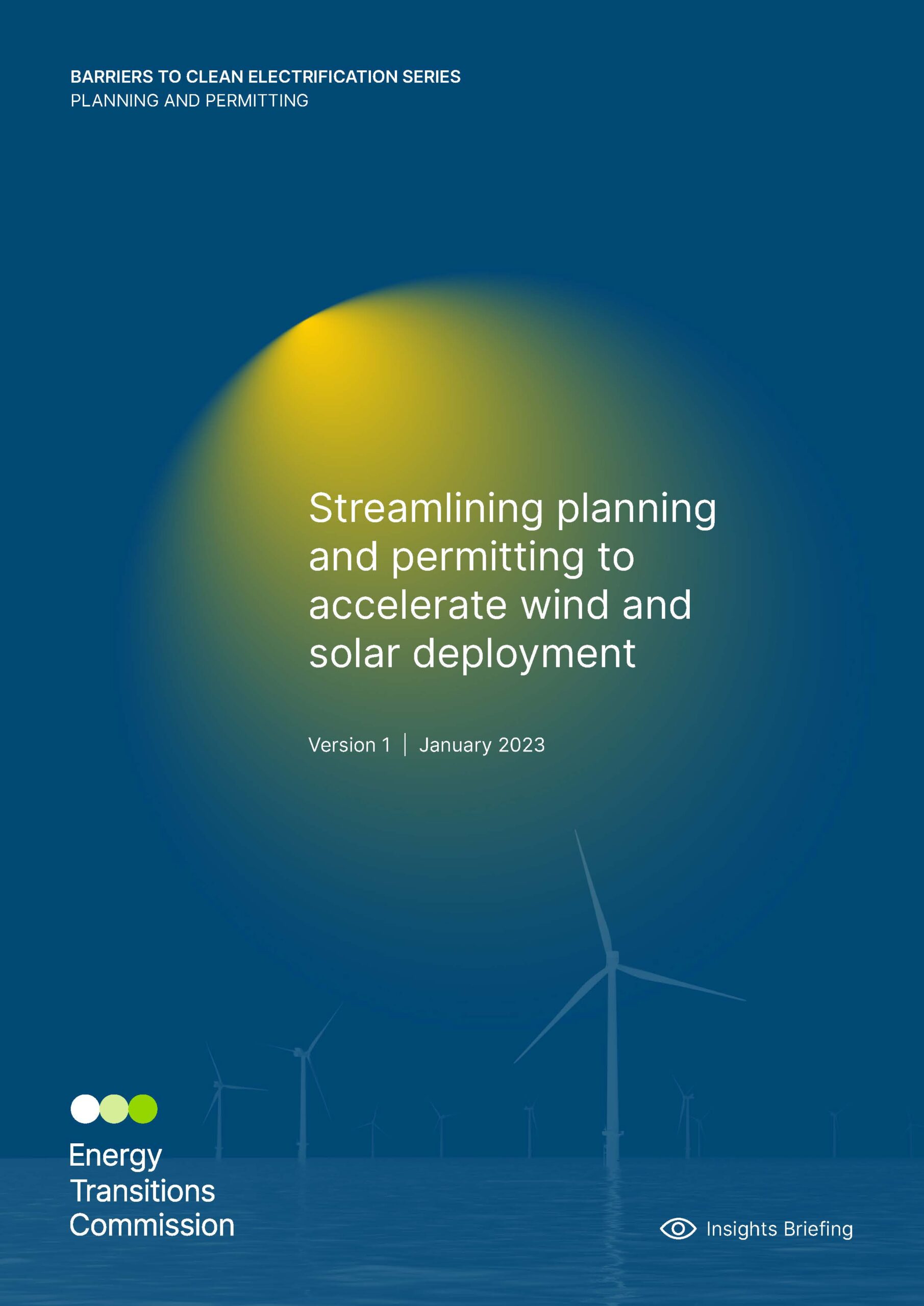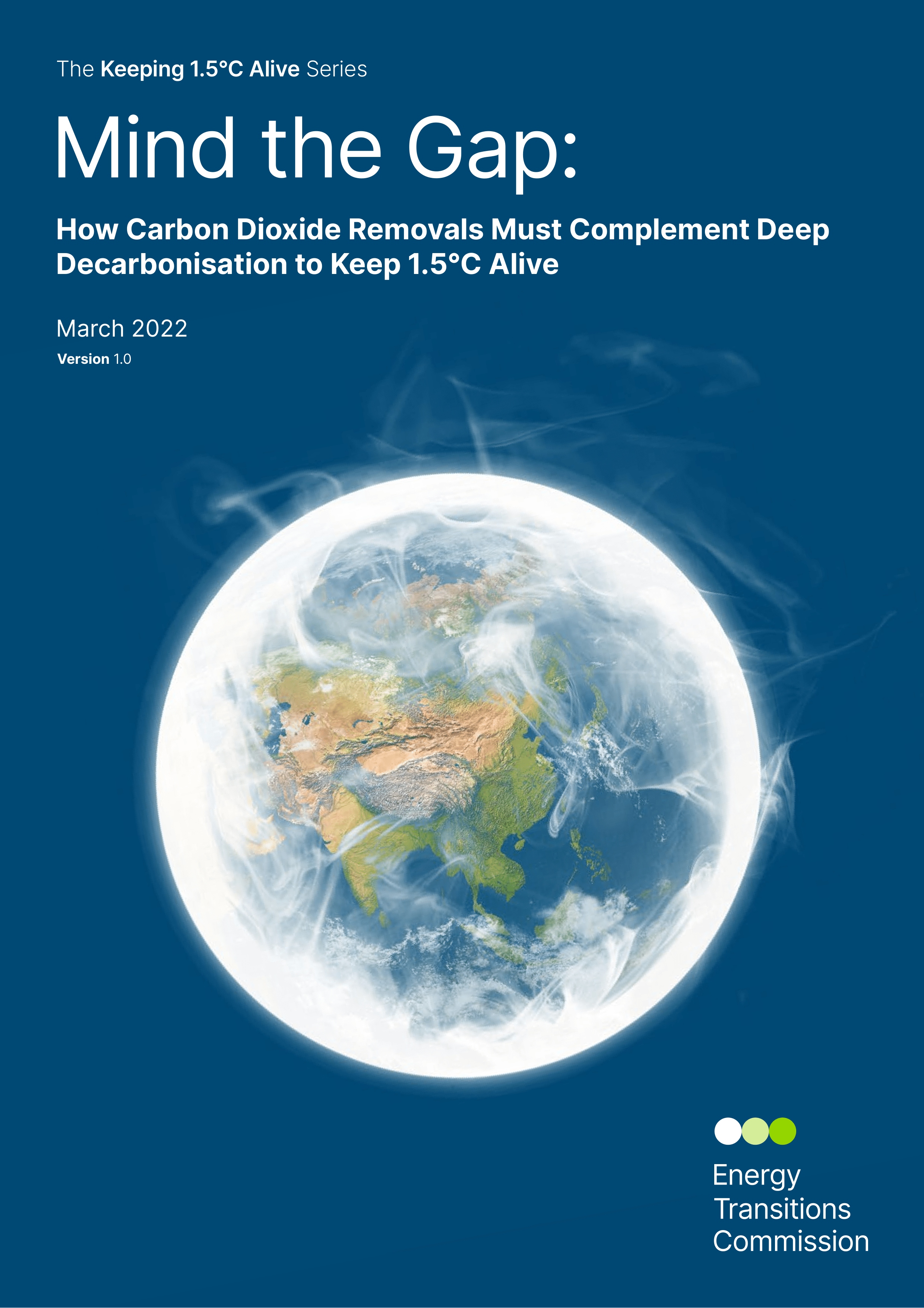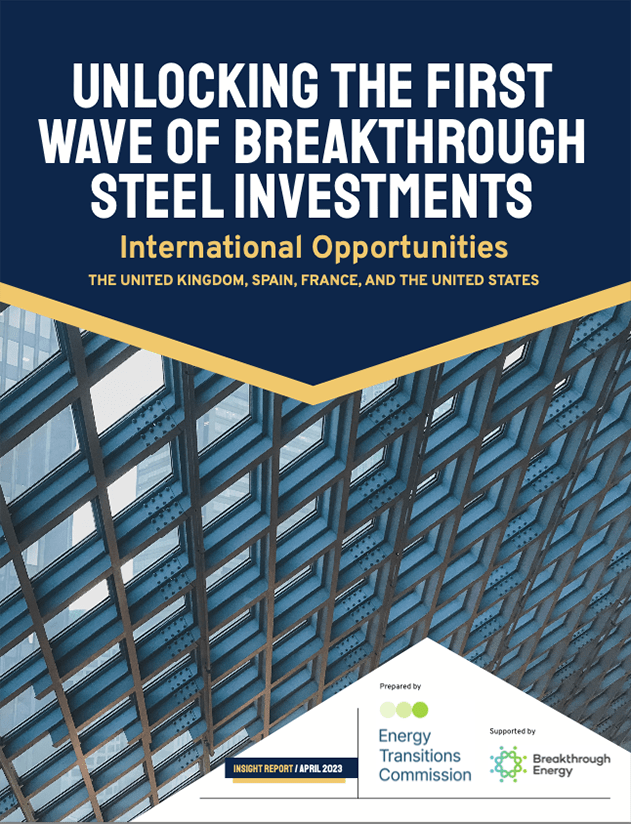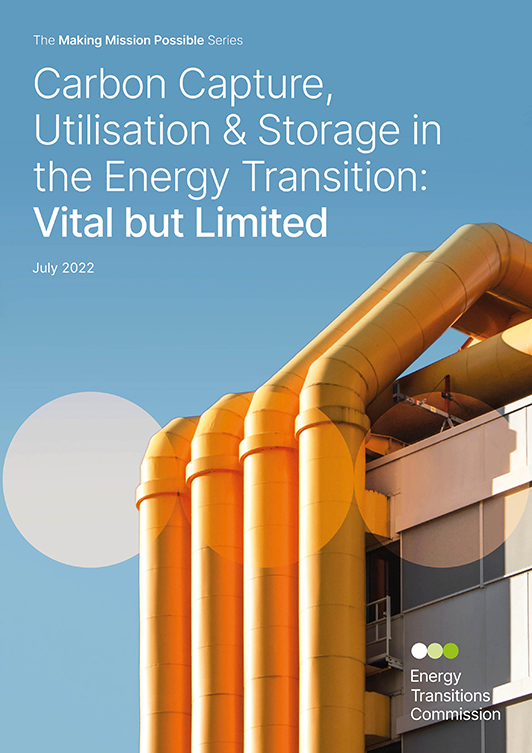Financing the Transition: How to Make the Money Flow for a Net-Zero Economy
March 2023
In its latest report Financing the Transition: How to make the money flow for a net-zero economy the ETC highlights the critical importance of strong government policies relating both to the real economy and to the financial system if finance is to flow on the scale required. It also identifies “concessional/grant” payments needed to support early coal phase-out, end deforestation and finance carbon removals.
Around $3.5 trillion a year of capital investment will be needed on average between now and 2050 to build a net-zero global economy, up from $1 trillion per annum today. Of this, 70% is required for low-carbon power generation, transmission, and distribution, which underpins decarbonisation in almost all sectors of the economy.
Part of the investment needed will be offset by declining investment in fossil fuels, cutting the $3.5 trillion per annum requirement to a net $3 trillion. This is equivalent to 1.3% of potential average annual global GDP over the next 30 years. In middle- and low-income countries, much of the investment would be required to support economic growth even in the absence of a climate change challenge.
Conceptually separate from capital investment (which will deliver positive economic returns), “concessionary/grant” payments will be required to help cover the economic costs of early coal phase-out, to offset the incentives to deforest, and to fund carbon dioxide removals.
Concessional/grant payments in middle- and low-income countries (excluding China) will be essential this decade if the world is to achieve its 1.5°C objectives and could amount to around $0.3 trillion a year by 2030. This money could, in theory, come from corporates via voluntary carbon markets, philanthropy, and high-income countries.


